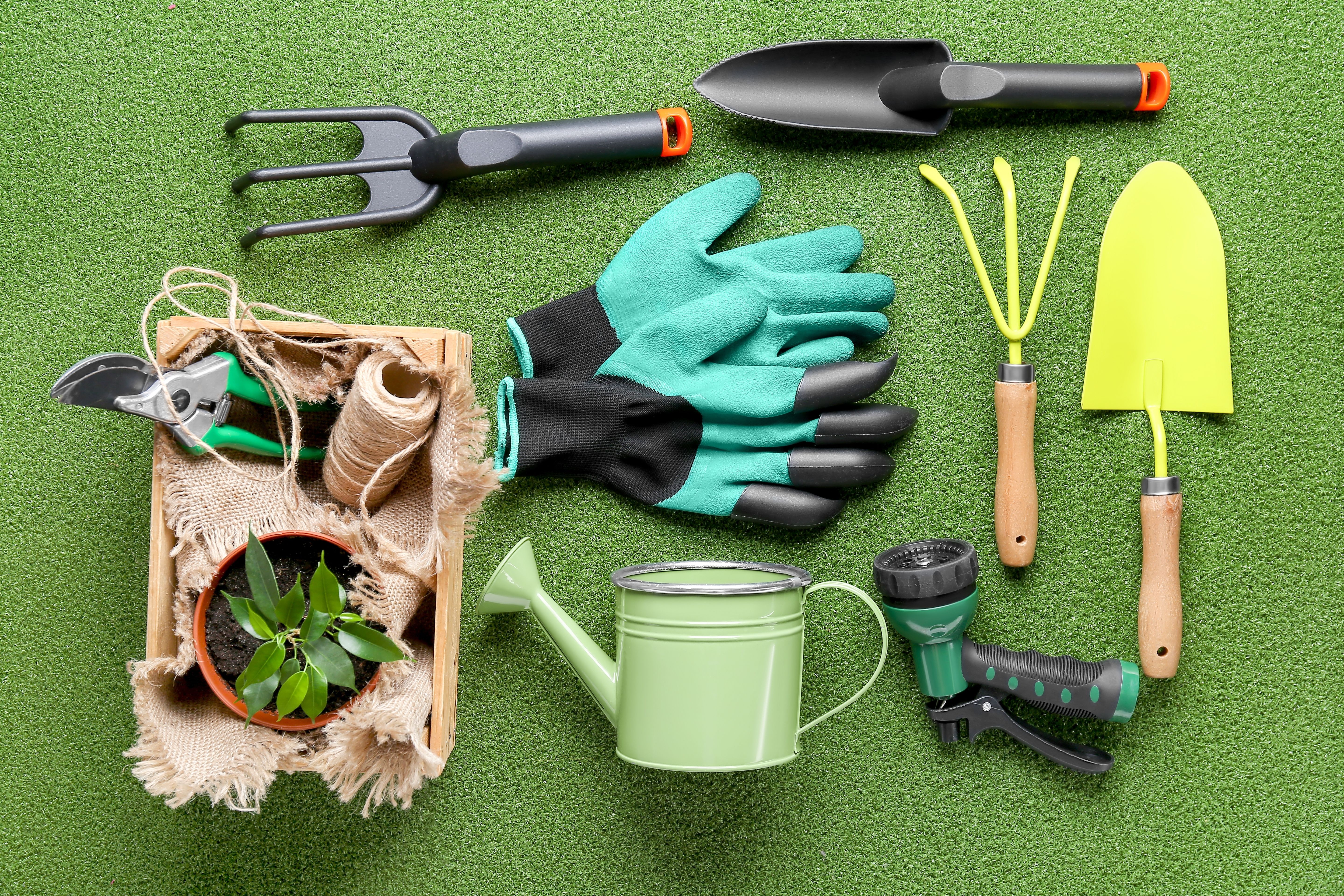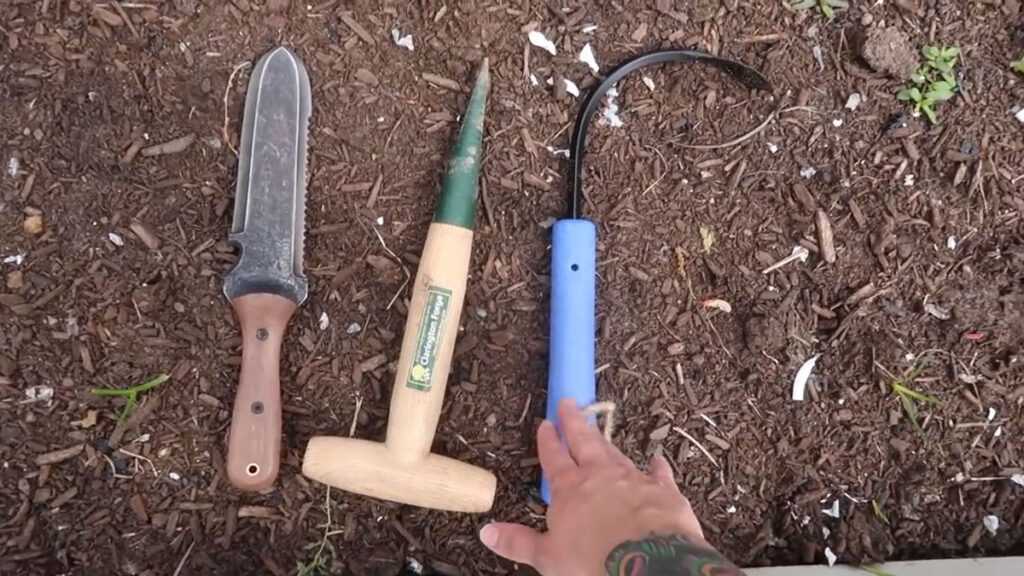blog
Essential Tools for Organic Gardening
Organic gardening has gained immense popularity in recent years as more people prioritize sustainability and healthier food options. This gardening approach avoids synthetic fertilizers and pesticides, focusing instead on natural processes to grow plants. To succeed in organic gardening, having the right tools is essential. These tools not only make tasks more manageable but also help maintain the health of your soil and plants. In this article, we’ll explore the essential tools every organic gardener needs to cultivate a thriving garden.
1. Hand Trowel
Why It’s Essential
A hand trowel is a versatile tool used for digging, planting, and transferring soil or compost. It’s indispensable for tasks like planting seedlings or bulbs and digging small holes for transplants.
Features to Look For
- Ergonomic Handle: Reduces hand strain during extended use.
- Stainless Steel Blade: Resists rust and provides durability.
- Pointed Tip: Ideal for breaking up compact soil.
A durable hand trowel ensures precise planting and minimizes soil disturbance, which is crucial for organic gardening practices.

2. Pruning Shears
Why It’s Essential
Pruning shears, or secateurs, are vital for maintaining plant health. Regular pruning encourages growth and prevents diseases by removing dead or damaged branches.
Features to Look For
- Sharp Blades: Ensure clean cuts to reduce plant stress.
- Adjustable Mechanism: Accommodates different hand sizes.
- Comfortable Grip: Important for prolonged use.
High-quality pruning shears help maintain the integrity of plants, which is particularly important in organic gardening, where chemical disease prevention is not an option.
3. Garden Hoe
Why It’s Essential
A garden hoe is indispensable for preparing soil, weeding, and aerating. Organic gardens rely on healthy soil, and a hoe helps keep the topsoil in excellent condition.
Features to Look For
- Durable Blade: For cutting through tough weeds and soil.
- Comfortable Handle: Reduces fatigue during use.
- Right Size: A hoe suited to your garden size ensures efficiency.
By using a garden hoe, you can effectively manage weeds without resorting to herbicides, adhering to organic principles.
4. Compost Bin
Why It’s Essential
Composting is a cornerstone of organic gardening. A compost bin allows you to recycle kitchen scraps and garden waste into nutrient-rich compost that enriches your soil naturally.
Features to Look For
- Ventilation: Ensures proper aeration for decomposition.
- Durable Material: Weather-resistant for outdoor use.
- Easy Access: For turning and removing compost.
Investing in a good compost bin reduces waste and provides your garden with organic matter to improve soil structure and fertility.
5. Watering Can or Irrigation System
Why It’s Essential
Proper watering is critical in organic gardening to ensure plants thrive without overusing water resources. A watering can or an efficient irrigation system provides consistent hydration.
Features to Look For
- Watering Can: Choose one with a detachable spout for versatility.
- Irrigation System: Drip systems are ideal for conserving water while delivering it directly to plant roots.
- Eco-Friendly Materials: Opt for sustainable options like recycled plastic or metal.
Maintaining proper moisture levels helps prevent plant stress and supports beneficial microorganisms in the soil.
6. Mulching Tools
Why It’s Essential
Mulching helps retain soil moisture, suppress weeds, and regulate soil temperature. Organic mulches like straw, wood chips, or grass clippings can be applied using specialized tools.
Features to Look For
- Mulch Fork: For spreading and turning organic materials.
- Wheelbarrow: Eases transport of mulch across the garden.
- Soil Rake: Ensures even distribution.
Using mulch tools effectively enhances soil health, a key factor in organic gardening success.
7. Soil Testing Kit
Why It’s Essential
Healthy soil is the foundation of organic gardening. A soil testing kit allows you to measure pH levels and nutrient content, ensuring your soil is balanced and fertile.
Features to Look For
- Comprehensive Testing: Covers pH, nitrogen, phosphorus, and potassium.
- Ease of Use: Simple instructions and clear results.
- Reusable Kits: More cost-effective for regular testing.
Monitoring soil health helps you make informed decisions about adding organic amendments like compost or lime.
8. Weeding Tools
Why It’s Essential
Weeds compete with your plants for nutrients, water, and sunlight. Effective weeding tools help you manage them without the use of chemical herbicides.
Features to Look For
- Hand Weeder: For small, stubborn weeds.
- Hoe or Cultivator: For larger areas.
- Ergonomic Designs: Minimize strain during use.
Consistent weeding ensures your organic garden remains productive and free from invasive plants.
9. Gloves
Why It’s Essential
Gardening gloves protect your hands from cuts, blisters, and exposure to soil-borne pathogens. They’re essential for comfort and safety during gardening tasks.
Features to Look For
- Durable Material: Leather or nitrile for tough tasks.
- Breathable Fabric: Prevents sweating during long use.
- Snug Fit: Ensures dexterity.
Investing in high-quality gloves makes gardening more enjoyable and reduces the risk of injuries.
10. Plant Supports and Ties
Why It’s Essential
Many plants, especially climbers and heavy fruiting varieties, need support to grow properly. Plant supports and ties help keep plants upright and healthy.
Features to Look For
- Sturdy Stakes: Bamboo or metal options are eco-friendly and durable.
- Soft Ties: Prevent damage to plant stems.
- Trellises: For vertical gardening.
Using supports not only promotes healthy growth but also makes harvesting easier.
11. Wheelbarrow or Garden Cart
Why It’s Essential
Transporting soil, compost, or tools becomes much easier with a wheelbarrow or garden cart. This tool is a must-have for reducing physical strain.
Features to Look For
- Lightweight Frame: Easy to maneuver.
- Durable Wheels: For stability on uneven terrain.
- Spacious Design: Holds larger loads.
A reliable wheelbarrow streamlines garden tasks and enhances productivity.
12. Natural Pest Control Tools
Why It’s Essential
Organic gardening avoids chemical pesticides, relying instead on natural pest control methods. Tools for managing pests help maintain ecological balance.
Features to Look For
- Insect Traps: Safe and effective for capturing harmful insects.
- Row Covers: Protect plants from pests without chemicals.
- Beneficial Insect Attractors: Encourage pollinators and predators like ladybugs.
Natural pest control tools are integral to maintaining a healthy, organic garden ecosystem.
Conclusion
Organic gardening requires a unique set of tools that prioritize sustainability, soil health, and plant well-being. From basic tools like trowels and pruning shears to specialized items like soil testing kits and compost bins, each tool plays a crucial role in creating a thriving organic garden. By investing in high-quality, eco-friendly tools, you not only make your gardening efforts more efficient but also contribute to a healthier planet.



